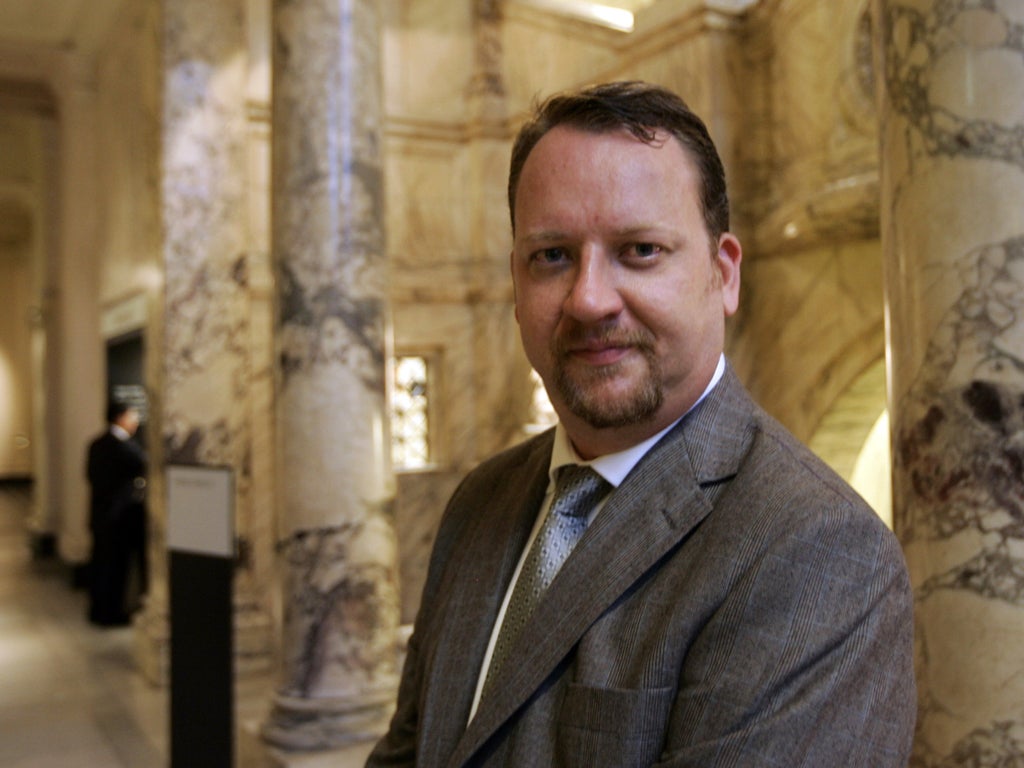King of the Badgers, By Philip Hensher [sic], By Joshua Cody By Nightfall, By Michael Cunningham Made in Britain: Why Our Economy is More Successful Than You Think, By Evan Davis Foreign Bodies, By Cynthia Ozick
Paperback reviews of the week

Your support helps us to tell the story
From reproductive rights to climate change to Big Tech, The Independent is on the ground when the story is developing. Whether it's investigating the financials of Elon Musk's pro-Trump PAC or producing our latest documentary, 'The A Word', which shines a light on the American women fighting for reproductive rights, we know how important it is to parse out the facts from the messaging.
At such a critical moment in US history, we need reporters on the ground. Your donation allows us to keep sending journalists to speak to both sides of the story.
The Independent is trusted by Americans across the entire political spectrum. And unlike many other quality news outlets, we choose not to lock Americans out of our reporting and analysis with paywalls. We believe quality journalism should be available to everyone, paid for by those who can afford it.
Your support makes all the difference.King of the Badgers, By Philip Hensher
Fourth Estate, £8.99
****
The England that Hensher presents in this deftly drawn novel is the kind of England that both progressives and reactionaries will resist. Reactionaries will loathe the hidden homosexuality of married men just as much as the more upfront displays by those holding sex parties; progressives will bristle at the narrow-mindedness and snobbery of middle-class housewives towards their poorer counterparts.
Hensher admirably pays no heed to others' comfort but that's not to suggest his English town is without kindness or understanding or humanity. The backdrop of the apparent abduction of a little girl, China, from a nearby housing estate, in a clear nod to the Shannon Matthews case, highlights not simply the deceit of misguided mothers, cheating husbands, dominating wives and obsessive Neighbourhood Watch organisers. It also highlights the sort of deceit used to shield people. When their gay son, David, dies in a sordid accident, his parents Alec and Catherine, who have long done their rather hapless best to understand his sexuality, are deceived about the true nature of his relationship with his boyfriend, Mauro, it's a touching moment that combines both black humour and pathos. That combination is perhaps more quintessentially English than anything else in the novel.
[sic], By Joshua Cody
Bloomsbury, £7.99
****
Cody's account of his illness and treatment is about as postmodern a cancer-memoir you could find. A music postgraduate who discovered his cancer wouldn't respond to the usual treatments, he embarked on a slightly surreal journey through it all, picking up Asian girls on the way home from a bar, indulging in more cocaine use than was good for him, getting embroiled in damaging relationships with addicts. As he ponders the suicide of David Foster Wallace, a writer he imagines he would have liked as a person, he inevitably provokes the same question in the mind of the reader about himself. There's an honesty about Cody that makes him a great writer; whether it makes him a person you'd like is something else.
By Nightfall, By Michael Cunningham
Fourth Estate, £7.99
****
This story of a married, middle-aged father who falls in love with his wife's younger, more wayward brother might seem a little implausible on paper, but Cunningham handles it convincingly. Peter Harris has everything a successful man might wish – an attractive, confident and intelligent wife; a good job as an art exhibitor and dealer; a great apartment in New York. But behind the facade are glimpses of unhappiness: small discords between himself and his wife, a troubled daughter who's not realising her potential, a sense that he hasn't achieved enough and doesn't have enough time left. Above it all though, is Cunningham's hymn to the city with which Peter has a 'love-hate' relationship as he wanders, Bloom-like, through his home town.
Made in Britain: Why Our Economy is More Successful Than You Think, By Evan Davis
Abacus, £8.99
****
Davis freely admits that his book is not the one to turn to if you're concerned about the ethics of selling arms or polluting the environment. What he wants to do is simply assess the economics of the country's situation, and to argue against those who think otherwise that we do manufacture and we do produce – maybe not as much as we did in the past, but as much as we need to in order to maintain a decent economy. To be fair to him, his preface to this edition was probably written before the announcement of the double-dip recession, but his analysis is sensation-free and accessible (why does it cost less to buy a new duvet than it does to have it dry-cleaned?).
Foreign Bodies, By Cynthia Ozick
Atlantic, £7.99
****
Ozick's 1950s-set tale of bohemian Paris is oddly beautiful, a kind of curiosity that we rarely glimpse. Bea Nightingale is a divorced middle-aged New Yorker bullied by her ghastly brother into going to Paris after his son. She still has the oversize piano her husband bought when they first married – his grandiose dreams pushed her into a less fulfilling life as a school teacher, and she has never quite let go of the piano or of him, even after he abandoned her. Similarly, she lets her brother bully her and her nephew, when she finds him, cheek her. A novel about awakening in middle age, it has a touching quirkiness.
Join our commenting forum
Join thought-provoking conversations, follow other Independent readers and see their replies
Comments